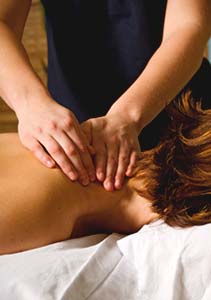 As you may recall, a few months back I wrote a post investigating whether kava could make up a healthy part of an exercise routine, as a post-exercise tonic for relaxing and repairing muscles. The more I delved into these positive associations of kava and exercise, the more I began to wonder, how does kava relieve muscle tension and help relax muscles?
As you may recall, a few months back I wrote a post investigating whether kava could make up a healthy part of an exercise routine, as a post-exercise tonic for relaxing and repairing muscles. The more I delved into these positive associations of kava and exercise, the more I began to wonder, how does kava relieve muscle tension and help relax muscles?
Physical Mag Online has started recommending kava as a pre-game tonic for athletes who have a competition the next day, noting that it promotes refreshing, restful sleep, calm focus, as well as relaxes muscles to keep them limber and ready for action. Bodybuilding sites are also starting to promote kava as a treatment for muscle tension and soreness as a result of overtraining: muscles can only repair and rebuild themselves when they are at rest, so kava’s relaxing actions on muscles make it an ideal post-exercise tonic. Of course, kava also provides all these benefits without a next-day hangover or grogginess… no wonder pro athletes like Ruben Wiki are so fond of it!
The hypotonic (relaxing) effects of kavalactones on muscles are well-known from decades of research. Some of the earliest experiments involved injecting kava resin intraperitoneally (that is, into the body cavity) in frogs, birds and cats to measure kavalactones’ sedative effects. Kavalactones seem to work mostly on skeletal muscles—those responsible for voluntary movement—though one study I found very interesting suggested that kava extract improves baroreflex control of the heart rate, a measurement that is inversely correlated with the risk of heart attack in people with anxiety disorders. In other words, having better baroreflex control lowers one’s risk of heart attack, and kava extract seems to improve this measure in anxiety sufferers [1]!
But I digress: when it comes to kavalactones’ benefits for muscle tension, many people have experienced notable relief from tight or overworked muscles. Joint and muscle pain—particularly back pain—may also be ameliorated with kava. Though the mechanism isn’t fully known yet, I think it’s quite possible that kavalactones’ anti-inflammatory and muscle relaxing actions could also have pain-reducing effects, as tension and pain are often two sides of the same coin.
Given all the research that’s been done on kava, it might surprise you to learn that scientists still aren’t sure how kava works its relaxing magic on muscles. Some early theories were that kavalactones regulate GABA (gamma amino butyric acid) in the brain, the neurotransmitter released when we feel relaxed, tranquil and at peace. However, initially researchers couldn’t find kavalactones affecting GABA receptors in the brain. Some current explanations for kava’s calming effect on mental states argue instead that kavalactones affect the limbic system and amygdala. These very old brain structures are thought to have a role in modulating physical drives such as our appetite, libido, and sleepiness, as well as emotions such as fear and anger.
As for how kava relieves muscle tension? Well, certain kava experts such as Yadhu N. Singh believe that kavalactones may act directly on the calcium ion channels in muscle cells [2]. Calcium ion channels regulate the electrical signals which produce muscle contractions. In other words, kava may relieve muscle tension by working directly on the cellular mechanism that regulates muscular contractions, rather than by interrupting nerve signals from the brain as do many conventional antispasmodic drugs. I don’t know about you, dear readers, but this sounds like good news to me! I’d much rather take a natural muscle relaxant like kava, in the knowledge that it won’t interfere with my awareness or clarity of mind, than a drug that could have unwanted side effects and leave me feeling foggy.
Though it is generally a very safe muscle relaxant, there are a couple caveats I must mention with kava. In a few cases, kava has caused temporary involuntary muscle movements called dystonia after use; this side effect is much more likely in people who are taking certain antipsychotic drugs that also can cause dystonia. Also, people with Parkinson’s disease should not take kava because it may affect dopamine levels, and possibly interfere with the actions of levodopa, a drug used to treat Parkinson’s.
There you have it: not only does kava safely soothe the body from everyday stress, its direct relaxing effects can also soothe muscle tension and ease pain without sacrificing mental clarity. Whether you’re a professional athlete or a weekend warrior, perhaps now you’ll consider adding kava to your post-workout regimen! I’d be excited to hear your results!
Aloha no,
Makaira
REFERENCES
1. Watkins L, K Connor, J Davidson. December 2001. “Effect of kava extract on vagal cardiac control in generalized anxiety disorder: preliminary findings.” Journal of Psychopharmacology 15: 283-86.
2. Singh, Yadhu N and M Blumenthal. “Kava Culture, Then and Now”. Herbs for Health 2 (6).





